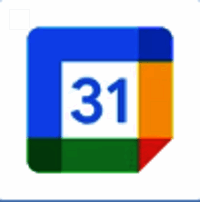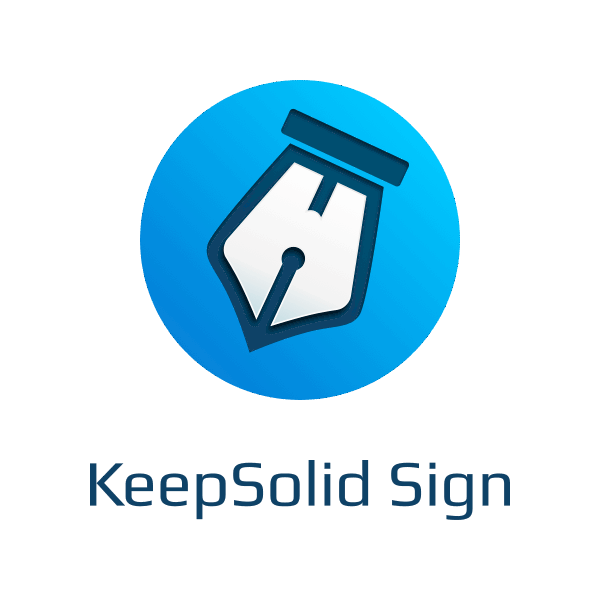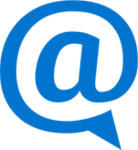Description

Google Calendar

KeepSolid Sign

Wordzen
Comprehensive Overview: Google Calendar vs KeepSolid Sign vs Wordzen
Google Calendar
a) Primary Functions and Target Markets
Primary Functions:
- Scheduling and Time Management: Google Calendar allows users to schedule events, set reminders, and manage appointments with ease.
- Integration: It integrates seamlessly with other Google Workspace applications like Gmail, Google Meet, and Google Tasks, enabling streamlined workflows and productivity.
- Shared Calendars: Users can create and share calendars with others, making it easy for teams and families to coordinate schedules.
- Cross-Platform Availability: Available on web and mobile devices (iOS and Android), ensuring access no matter the platform.
Target Markets:
- Individual Users: Anyone needing an efficient calendar solution for personal use.
- Businesses and Enterprises: Organizations looking for a collaborative and integrated productivity tool.
- Educational Institutions: Schools and universities that require organized scheduling solutions.
b) Market Share and User Base
- Google Calendar is part of Google Workspace, which boasts millions of users worldwide, making it one of the most widely-used digital calendar products in the market. While exact user base numbers for Google Calendar alone are not often disclosed, Google Workspace reported having over 6 million paying businesses as of early 2020, with usage spanning millions more through free accounts.
c) Key Differentiating Factors
- Integration with Google Services: Deep integration with other Google services is a significant advantage.
- Free with Google Account: It offers robust features at no cost to users with a Google account.
- Ubiquity and Ease of Use: Known for its user-friendly interface and widespread familiarity.
KeepSolid Sign
a) Primary Functions and Target Markets
Primary Functions:
- Electronic Signature: KeepSolid Sign allows users to sign documents electronically, providing a secure and legally binding process.
- Document Management: Users can manage, store, and share documents securely.
- Real-Time Updates and Notifications: Notifies users of signing requests and document status changes.
Target Markets:
- Businesses of All Sizes: Companies looking to streamline documentation and signing processes.
- Legal and Financial Sectors: Industries that require frequent and secure exchange of signed documents.
b) Market Share and User Base
- As an e-signature platform, KeepSolid Sign is a niche offering compared to giants like DocuSign or Adobe Sign. It holds a smaller market share but serves a dedicated user base that prefers its pricing or specific features.
c) Key Differentiating Factors
- Cost-Effective: Often positioned as a more affordable option compared to competitors.
- Secure and Compliant: Focus on security and compliance with e-signature laws.
- User Experience: Known for ease of use and a smooth signing process.
Wordzen
a) Primary Functions and Target Markets
Primary Functions:
- Email Composition Assistant: Wordzen is a service that helps users compose professional emails by providing editing and drafting assistance.
- Human Editors: Unlike automated tools, Wordzen employs human editors to ensure nuanced, high-quality communication.
Target Markets:
- Individuals and Professionals: Those needing assistance in crafting professional and polished emails.
- Corporate and Business Professionals: Employees who require error-free, sophisticated communication.
b) Market Share and User Base
- Wordzen caters to a niche sector focused on email perfection. Its market share is relatively small compared to comprehensive email management platforms, yet it serves a dedicated clientele valuing premium communication improvements.
c) Key Differentiating Factors
- Human Touch: Relies on human editors rather than solely automated algorithms.
- Quality Assurance: Ensures high-quality, professional email output.
- Specialized Service: Focused specifically on improving email content through expert editing.
Comparative Overview
In summary, while Google Calendar dominates the scheduling and time management space through ubiquity and seamless integration within Google Workspace, KeepSolid Sign and Wordzen serve more niche markets. KeepSolid Sign differentiates itself with its focus on secure document signing at a competitive price, whereas Wordzen emphasizes premium email drafting assistance with human editors. Each product caters to different needs, with Google Calendar being more general-purpose and the latter two targeting specific business processes.
Contact Info

Year founded :
Not Available
Not Available
Not Available
Not Available
Not Available

Year founded :
Not Available
Not Available
Not Available
Not Available
Not Available

Year founded :
2015
+1 937-838-0354
Not Available
United States
http://www.linkedin.com/company/wordzen-for-gmail
Feature Similarity Breakdown: Google Calendar, KeepSolid Sign, Wordzen
When comparing Google Calendar, KeepSolid Sign, and Wordzen, it's important to note that these products serve different primary purposes: Google Calendar is a scheduling and time management tool, KeepSolid Sign is an e-signature solution, and Wordzen is an email productivity tool primarily for composing and editing. However, we can still draw some comparisons in terms of features, user interface, and unique elements.
a) Core Features in Common
-
Collaboration and Sharing:
- All three products allow for some level of collaboration. Google Calendar allows users to share calendars and events with others, KeepSolid Sign offers document sharing for signatures, and Wordzen allows sharing and delegation of email tasks.
-
Cross-Platform Availability:
- Each product is available on multiple platforms. Google Calendar can be accessed via web, mobile apps, and integrates with other Google services. KeepSolid Sign and Wordzen also offer web-based access and have mobile apps to ensure users can remain productive on-the-go.
-
Notifications and Alerts:
- Google Calendar sends event reminders, KeepSolid Sign provides alerts for signing status updates, and Wordzen can notify users about email changes or when a task is completed.
b) User Interfaces Comparison
-
Google Calendar:
- User-friendly and intuitive, with a clean design much like other Google Workspace products. It offers a visually straightforward calendar view with options for day, week, month, or custom scheduling.
-
KeepSolid Sign:
- Designed to be simple and efficient, focusing on document workflow with clear steps for setting up, reviewing, and signing documents. The interface emphasizes ease of use with drag-and-drop functionality and a centralized dashboard.
-
Wordzen:
- Integrated into Gmail, Wordzen's interface blends with Gmail’s native layout. It adds functionalities like "Send for Editing" buttons seamlessly into the Gmail interface, maintaining consistency while enhancing capability.
c) Unique Features
-
Google Calendar:
- Strong integration with other Google Workspace apps offers unique features like smart scheduling suggestions, appointment slots, and integration with Google Meet for video conferencing directly from calendar events.
-
KeepSolid Sign:
- Provides advanced security features including encryption and compliance with various legal and industry standards. It offers offline signing capabilities, which is beneficial for users with intermittent internet access.
-
Wordzen:
- Unique in that it offers human editing services, where professional editors can revise emails for tone, clarity, and professionalism. This level of concierge service is distinctive compared to conventional email management tools.
In summary, while Google Calendar, KeepSolid Sign, and Wordzen share some basic functional overlaps like collaboration and notifications, they are distinct in their primary capabilities and application domains. Each offers unique integrations, design philosophies, and specialized features that cater specifically to their particular use cases.
Features

Not Available

Not Available

Not Available
Best Fit Use Cases: Google Calendar, KeepSolid Sign, Wordzen
Here is an analysis of the best use cases for Google Calendar, KeepSolid Sign, and Wordzen, including the types of businesses or projects that would benefit from each, scenarios for their preferred use, and how these products cater to different industry verticals or company sizes.
a) Google Calendar
Best Fit Use Cases:
- Businesses or Projects:
- Small to Large Businesses: Google Calendar is suitable for any size of business due to its integration capabilities, simplicity, and expansive feature set.
- Remote Teams: Teams working from different locations benefit from calendar sharing, scheduling capabilities, and time zone features.
- Project Management: Ideal for setting deadlines, meeting schedules, and reminders within project timelines.
- Educational Institutions and Event Planning: Useful for schools, colleges, and event planners for managing multiple schedules and organizing events.
Catering to Industry Verticals and Company Sizes:
- Google Calendar’s flexibility and integration with other Google Workspace tools make it adaptable for various industries, including technology, education, healthcare, and more.
- It scales well with businesses, from freelancers to large enterprises, offering features suitable for both simple and complex scheduling needs.
b) KeepSolid Sign
Best Fit Use Cases:
- Scenarios:
- Legal and Contract Management: Ideal for businesses that require secure and legally binding electronic signatures.
- Real Estate Transactions: Quick signing of leasing agreements or closing documents.
- Sales Agreements and Procurement: Great for streamlining the signing process in sales departments and procurement offices.
- Remote Work Situations: Facilitates signing important documents without the need for physical presence.
Catering to Industry Verticals and Company Sizes:
- KeepSolid Sign caters particularly well to industries like legal, real estate, finance, and logistics where document security and signatures are crucial.
- It is suitable for small to medium-sized enterprises that may not need the extensive features offered by larger electronic signature platforms but still require robust security.
c) Wordzen
Best Fit Use Cases:
- Scenarios:
- Business Communication: Companies looking to enhance the quality and professionalism of their email communications.
- Customer Support and Client Communication: Improving the response quality of emails sent to clients or customers with editing and drafting help.
- Social Media and Content Management: Assisting professionals who manage content and need precise and engaging communications.
Catering to Industry Verticals and Company Sizes:
- Wordzen is particularly helpful for industries like marketing, public relations, customer service, and content creation where high-quality written communication is key.
- It is an excellent tool for startups, freelancers, and small businesses that benefit from polished email communications without the expense of hiring a full-time editor.
Overall Comparisons
- Google Calendar is universal in its application, fitting almost any industry or company size where scheduling and time management are required.
- KeepSolid Sign is best for sectors needing secure electronic document signing, appealing to small to medium companies looking for straightforward yet secure solutions.
- Wordzen fills a niche for businesses needing enhanced email communication, suitable for operations heavily reliant on clear, professional interaction with clients or internally.
These tools serve different roles and cater to distinct needs across various industries, effectively supporting businesses as they grow and adapt to new digital workflows.
Pricing

Pricing Not Available

Pricing Not Available

Pricing Not Available
Metrics History
Metrics History
Comparing teamSize across companies
Conclusion & Final Verdict: Google Calendar vs KeepSolid Sign vs Wordzen
Conclusion and Final Verdict
When evaluating Google Calendar, KeepSolid Sign, and Wordzen, it's essential to consider each product in terms of its core functionality and value proposition. Each serves a different primary purpose—scheduling and organizing, digital signing of documents, and enhancing email communications, respectively.
a) Best Overall Value
Google Calendar offers the best overall value mainly due to its versatility, integration capabilities, and cost-effectiveness. It is not only widely used as a scheduling tool but also comes with the broader suite of Google Workspace applications, which adds significant value for users and businesses alike. Its seamless integration with other Google services, robust feature set, and ease of access make it an indispensable tool for both personal and professional scheduling needs.
b) Pros and Cons
Google Calendar:
- Pros:
- Seamless integration with other Google services and third-party applications.
- User-friendly interface with powerful scheduling and reminder features.
- Accessibility across various devices with real-time syncing.
- Free tier available with substantial features; premium features accessible via Google Workspace.
- Cons:
- Dependency on Google ecosystem may not suit every user or organization.
- Advanced features may require a subscription to Google Workspace.
- Privacy concerns due to data storage within Google’s ecosystem.
KeepSolid Sign:
-
Pros:
- User-friendly and efficient electronic signature solution.
- High-security standards for document signing and sharing.
- Supports a wide variety of document formats.
- Available on multiple platforms, enhancing versatility.
-
Cons:
- Subscription-based model may be costly for casual users.
- Primarily focused on document signing without additional collaboration tools.
- Integration options may be limited compared to other signature software.
Wordzen:
-
Pros:
- Enhances the quality of emails with professional editing.
- Saves time by outsourcing email composition and proofreading.
- Direct integration with Gmail simplifies the user experience.
-
Cons:
- Relatively niche use-case, might not be necessary for all users.
- Dependency on Wordzen's service for email drafting and corrections.
- Subscription costs could add up for extensive usage.
c) Specific Recommendations
For users trying to decide between these products, the choice largely hinges on their specific needs:
-
If your primary need is for seamless scheduling and integration with existing productivity tools, Google Calendar should be the go-to option. Its widespread utility and integration with the Google suite enhance productivity on multiple fronts.
-
For businesses or users requiring secure and efficient document signing, KeepSolid Sign offers focused functionality. It's particularly appealing for legal teams, real estate professionals, and anyone frequently needing to execute contracts electronically.
-
For users who want to enhance the quality and professionalism of their email communications, Wordzen provides a specialized service that can save time while improving communication effectiveness. This is particularly useful for professionals looking to maintain a highly polished email correspondence without investing too much time.
Ultimately, the best choice depends on your specific needs and the primary problem you are aiming to solve. Evaluate each product in the context of your usage scenario to ensure maximum benefit.